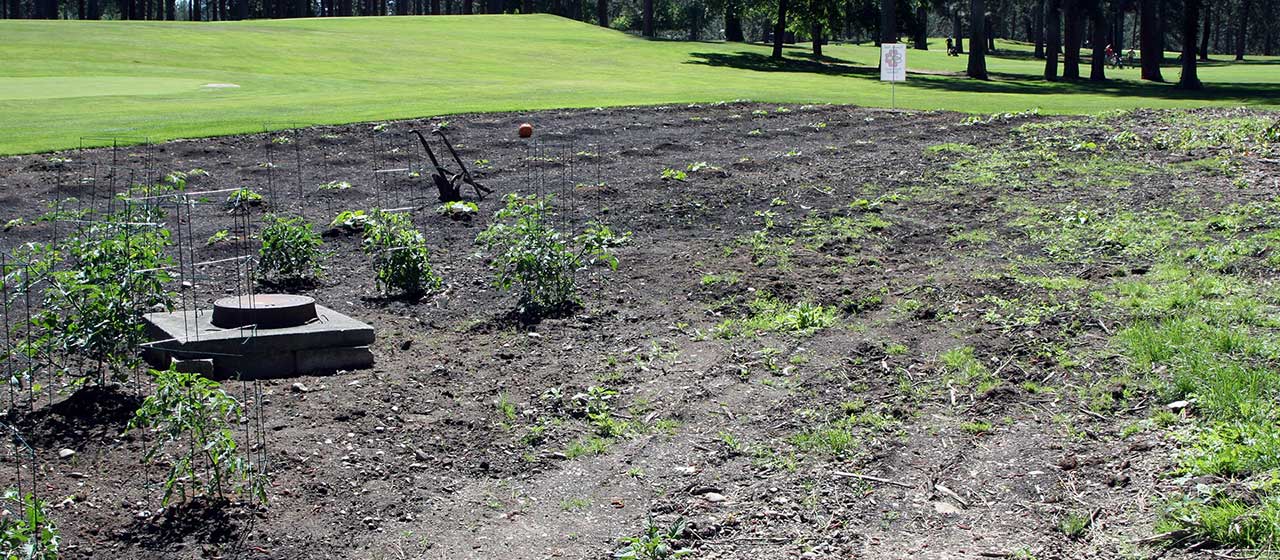
Downriver Golf Course Launches Pollinator Project
Josh Morrisey, City of Spokane Parks & Recreation, Marketing Assistant, No Phone Number Available
Wednesday, June 21, 2017 at 4:41 p.m.

To say that bees are important would be an understatement. In fact, one third of food we eat as humans is made possible by honey bees. In the spirit of protecting our local bee populations, the City of Spokane took a big step by banning neonicotinoid pesticides in 2014. This year, Head Superintendent Mike Greene from Downriver Golf Course decided to take it a step further.
“One of the things I decided to challenge myself to pursue this year was to do a better job highlighting the environmental community that the course already provides and develop new strategies to further benefit the community,” Greene said. “In 2017, we are using fewer and reduced risk pesticides, compost tea and beneficial microbes to fight diseases and developing more pollinator habitat. I ran this idea past Golf Committee and Park Board this winter and they welcomed it.”
Halfway through work on the pollinator project, the Downriver crew were notified that they were awarded a $2500 grant from the Bayer Corporation’s “Feed a Bee” program, allowing them to fully realize their vision.
The team at Downriver planted approximately 50,000 sq. feet of wildflowers and a small vegetable garden. The wildflowers are northwest native and the garden is primarily pumpkins which will be grown and used to decorate the course for its annual Halloween Open golf tournament. Beehives were moved onto the course in late May (no, they don’t bother golfers).

Greene sees the pollinator project as just one example of how golf courses provide benefits to the communities surrounding them beyond just a beautiful place to recreate with the sport of golf.
A few benefits Greene would like to highlight:
- A healthy stand of turf acts as a giant filter for storm water pollutants and unwanted nutrients such as Phosphorus in our groundwater.
- Slowing runoff from storm water prevents erosion, and allows for greater infiltration into the soil which recharges natural groundwater and aquifers.
- Healthy turf around the Downriver neighborhood lowers the average high temperature through evapotranspiration in the immediate vicinity by 7-14 degrees reducing AC needs by up to 25%.
- Healthy turf removes the greenhouse gas CO2 from the atmosphere, converts it to beneficial organic matter for the soil and gives off a lot of Oxygen. Not counting trees, shrubs and flowers the turf alone at Downriver is currently producing enough oxygen for approximately 150,000 Spokane residents every day.
Parks and Recreation Director Leroy Eadie says that pollinator projects like the one at Downriver could end up at other city courses in the future and sees it as a great example for other communities.
Coincidentally, this week is national pollinator week. Swing by for a round at Downriver this summer to see what all the buzz is about!
See the Spokesman Review’s article about Downriver’s pollinator project.
